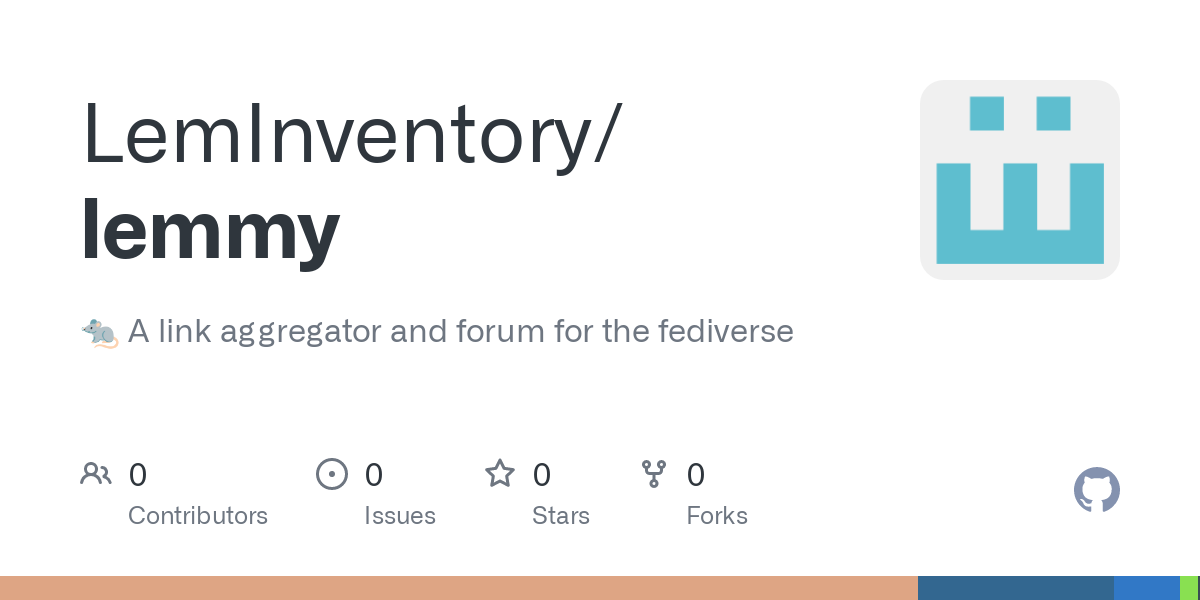How easy would it be to flakify the Lemmy repo to add a fourth build option for those of us in the Nix world?
I had the (perhaps foolishly ambitious) idea of creating a rolling fork of Lemmy with the intent of modifying the codebase for use in an open source pub sub implementation of retail inventory. But I have to get standard Lemmy working first…and I like to use Nix for everything I do in the dev world (where feasible).
So, I forked the repo and was immediately brought into dev environment hell.
They only offer a choice between:
A.) Docker B.) Ansible C.) Building from scratch.
Two hours of fighting with the scratch build instructions and I eventually had to admit defeat due to some vague dependencies (and general malaise). Though I have completely flakified my Purescript and Haskell dev environments, I have found Rust to be a lot more challenging even on simple projects.
Anyway, I decided to come here to ask: **How easy would it be to flakify the Lemmy repo to add a fourth build option for those of us in the Nix world? **
Can I reference the build instructions from nixpkgs to get close to my intended goal? I need all of the help I can get. Be as pedantic or defeatist as you will. I currently have no skin in this game and merely want to help the Lemmy devs welcome people that are more nixy like myself (if nothing else).
edit: here’s a naive attempt. I haven’t tested anything other than it being a valid flake. Here’s the link to my rolling flakification fork.
{
inputs = {
nixpkgs.url = "github:nixos/nixpkgs/nixos-unstable";
flake-parts.url = "github:hercules-ci/flake-parts";
systems.url = "github:nix-systems/default";
# Dev tools
treefmt-nix.url = "github:numtide/treefmt-nix";
};
outputs = inputs:
inputs.flake-parts.lib.mkFlake { inherit inputs; } {
systems = import inputs.systems;
imports = [
inputs.treefmt-nix.flakeModule
];
perSystem = { config, self', pkgs, lib, system, ... }:
let
cargoToml = builtins.fromTOML (builtins.readFile ./Cargo.toml);
nonRustDeps = [
pkgs.libiconv
# Derived from Documentation on Dev installation for Linux
pkgs.cacert
pkgs.postgresql
pkgs.openssl
pkgs.pkg-config
pkgs.libpqxx
];
rust-toolchain = pkgs.symlinkJoin {
name = "rust-toolchain";
paths = [ pkgs.rustc pkgs.cargo pkgs.cargo-watch pkgs.rust-analyzer pkgs.rustPlatform.rustcSrc pkgs.cacert pkgs.postgresql pkgs.openssl pkgs.pkg-config pkgs.libpqxx ];
};
in
{
# Rust package
packages.default = pkgs.rustPlatform.buildRustPackage {
inherit (cargoToml.package) name version;
src = ./.;
cargoLock.lockFile = ./Cargo.lock;
};
# Rust dev environment
devShells.default = pkgs.mkShell {
inputsFrom = [
config.treefmt.build.devShell
];
shellHook = ''
# For rust-analyzer 'hover' tooltips to work.
export RUST_SRC_PATH=${pkgs.rustPlatform.rustLibSrc}
export CARGO_PROFILE_DEV_BUILD_OVERRIDE_DEBUG=true
echo
echo "🍎🍎 Run 'just <recipe>' to get started"
just
'';
buildInputs = nonRustDeps;
nativeBuildInputs = with pkgs; [
just
rust-toolchain
];
RUST_BACKTRACE = 1;
};
# Add your auto-formatters here.
# cf. https://numtide.github.io/treefmt/
treefmt.config = {
projectRootFile = "flake.nix";
programs = {
nixpkgs-fmt.enable = true;
rustfmt.enable = true;
};
};
};
};
}
and here’s the lemmy-ui flake (which, judging by past forays into tsc with nix last summer, should be a lot easier to create and work with than the Rust library):
{
inputs = {
nixpkgs.url = "github:NixOS/nixpkgs/nixpkgs-unstable";
systems.url = "github:nix-systems/default";
};
outputs = {
systems,
nixpkgs,
...
} @ inputs: let
eachSystem = f:
nixpkgs.lib.genAttrs (import systems) (
system:
f nixpkgs.legacyPackages.${system}
);
in {
devShells = eachSystem (pkgs: {
default = pkgs.mkShell {
buildInputs = [
pkgs.nodejs
# You can set the major version of Node.js to a specific one instead
# of the default version
# pkgs.nodejs-19_x
# You can choose pnpm, yarn, or none (npm).
pkgs.nodePackages.pnpm
# pkgs.yarn
pkgs.nodePackages.typescript
pkgs.nodePackages.typescript-language-server
];
};
});
};
}



Are you just after a dev environment? Or are you looking to make lemmy a nix module, so you could make it a service on a nixos machine?
I made some flakes that might be a starting point for
nix develop.https://github.com/bburdette/lemmy/tree/flake.nix
https://github.com/bburdette/lemmy-ui/tree/flake.nix
Both repos require
git submodule initandgit submodule update.After
nix develop, I was able to build the rust with cargo build.The lemmy-ui one you have to
npm install pnpmso it makes a node_modules dir, then you can exit and reenternix developto get it to set the path. I used nodejs_20 but you might not need to. When I run it withpnpm dev, it complains about missing translation files. Some files got installed with a submodule, but maybe they’re in the wrong place? dunno, stopped there.Beyond that, I would try using their docker compose thing. Probably that will use the compiled typescript and/or rust code so you can work in a normal env and have those containers use your code. Haven’t tried it.
This looks great. I’ll try to incorporate some of what you did in a little while. Thanks!
Heads up with modern git you can now just use
git clone --recursiveand it will clone all sub modules automatically.